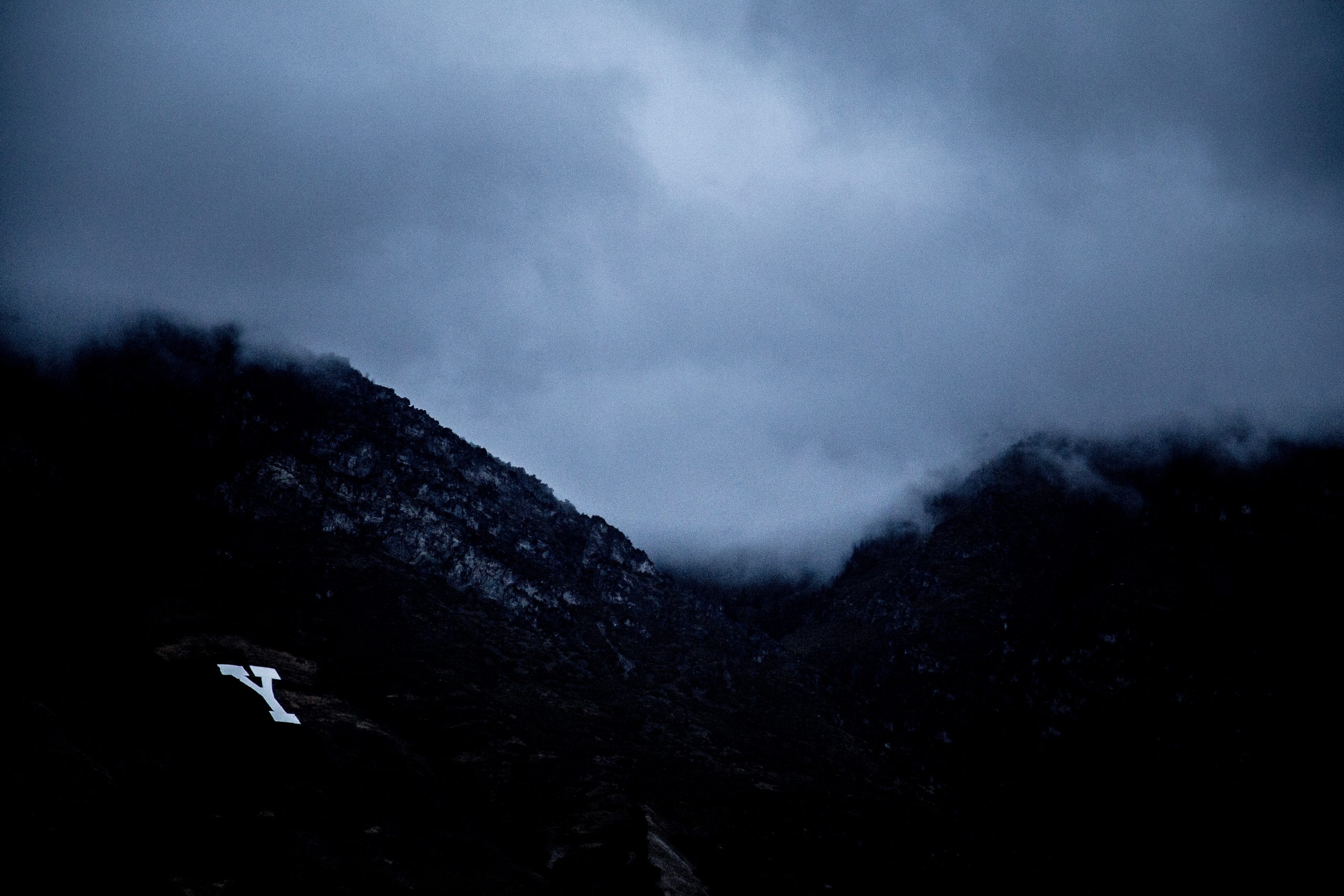The 2018 press release from Brigham Young University was all about LGBTQ inclusion. BYU just hosted Common Ground IV, an NCAA initiative where LGBTQ advocates meet with administrators from religious universities to “explore how representatives of LGBTQ and faith-based communities can work more cohesively in college sports and higher education.”
It was the first time the event had been held at a Division 1 institution. It seemed to be one of the several turning points for BYU, the Mormon-owned university with a notoriously stringent honor code that forbids everything from sexual activity to drinking caffeine–including, of course, same-sex relationships. There was some confusion about that last year: BYU stripped a rule banning behavior that reflects “homosexual feelings,” only to confirm the same-sex relationship ban just two weeks later.
For Emma Gee, the only publicly out athlete at BYU, the episodes were indicative of the school valuing lip service over action when it comes to LGBTQ issues. Generation Z is the most queer generation ever, in addition to the most liberal. These days, even the Mormon Church needs to seem down with inclusion, intersectionality, and other various buzzwords.
But the church’s intentions are as genuine as a #sponsored tweet for Pride Month, which is to say: It’s all about the show. Before Common Ground, Gee was pushing BYU athletics to add more inclusive spaces on campus for LGBTQ people. Her efforts were unsuccessful.
Three weeks following the event, a student in BYU’s off-campus LGBTQ campus club jumped off the side of the business building and died. Police confirmed the fall was an attempted suicide.
“The athletic administrator just told me, in my face, he was like, ‘Yeah, LGBTQ-plus inclusion isn’t a note that we want to overplay,'” Gee said. “Then I just had to be like, ‘We’re really trying to avoid the worst case scenario here, which, unfortunately is suicide.’ Then two weeks later, I don’t know, this poor girl who we knew from … anyway.”
It may seem like LGBTQ activism on college campuses can be superfluous these days, with schools bending over backwards to create safe spaces and cater to LGBTQIA+ students. But that’s not the case for those who go to school outside of New York City and Los Angeles, which is to say, most of them.
For LGBTQ activists on campus, the battle is still about visibility.
Or finding someone new on Tinder.
“The queer culture is pretty much the center on campus, and then the five women that I swipe through on Tinder every couple days,” said Megan Duthart, a queer rower from Washington State who started the school’s student-athlete LGBTQ alliance. “Honestly, it’s so bad.”
Shane Windmeyer, the president and CEO of Campus Pride, has been working in LGBTQ activism for nearly 30 years, and says we’ve become complacent. He estimates 95 percent of colleges want to appear LGBTQ inclusive–at least on the surface. But providing a truly open space means more than highlighting out students in brochures or hosting annual drag shows. It means actively working to empower LGBTQ students.
“We try to focus on the campuses that want to be LGBTQ friendly,” Windmeyer said. “It comes back to having an institutional commitment, and it comes back to campuses needing to have policies to be LGBTQ inclusive.”
So what does institutional commitment look like? At Ole Miss, Liam Mooney, president of the school’s LGBTQ organization, UM Pride, says he would like the school to push for transgender students to be able to easily obtain housing within their appropriate gender. Right now, students are still being forced into housing of their assigned gender at birth. The city of Oxford didn’t even hold its first Pride parade until 2016.
While Ole Miss strikes all of the right superficial notes, when it comes down to it, Mooney says LGBTQ students still feel like outsiders.
“I really have considered my whole sort of undergraduate career as being born out of sort of a struggle against the school’s institution,” he said. “I feel like that’s really generalizable to the queer community as a whole, too. Generally, it’s pretty difficult to find specifically queer spaces within our education. Even things like gender studies, queer studies generally attract a lot of students who don’t really respect the material or the professors who teach them.”
Kamal-Craig Golaube felt that way at Colorado State University, so he decided to start his own LGBTQ Athlete Ally group. Early in Golaube’s college track career, he was focused solely on performance. But as he’s grown older, the graduating senior is starting to see the intersecting aspects of his identity. He’s a queer Black athlete, and that means making sure his voice is represented authentically.
“My whole thing was, my voice wasn’t being heard,” he said. “Athlete, gay, Black man, the identities that I hold have intersected a lot, and I just realize that I’m not just these things at different times. I am all of them at once.”
When Windmeyer started his work in the mid-90s, the LGBTQ movement led with sexual orientation, and other identities were secondary. That’s no longer the case. Young millennials and members of Gen Z don’t compartmentalize. “There’s a need for today’s young person, they look at their whole authentic self,” he said. “Whereas when I was in school, we were very much siloed: ‘You’re gay, so this is your area,’ and ‘You’re part of the Black student union, so you’re part of this area because of your race.’ We have a better understanding and hopefully better focus today of looking at the intersections that queer people have.”
But at its core, the fights still come down to being treated equally. Veronica Penales, a sophomore at Baylor University, is one of 33 current and past students at federally funded Christian colleges and universities listed in a federal lawsuit filed against the U.S. Department of Education alleging these institutions are still wrongfully upholding exclusionary policies. Penales, who says she went to Baylor largely due to its generous financial aid package, can list off multiple examples of harassment, and the school taking no action about it. There was the time she got chosen to run the rainbow flags at a football game, only to have Bibles with dog-eared pictures left on her doorstep. Most recently, when she passed a bill for the school’s LGBTQ organization to be officially recognized, people start leaving sticky notes at her door calling her a “fag.”
She reported the incident in November, and is still waiting to hear back.
“We feel like Baylor doesn’t want us on campus, doesn’t care if we’re on campus,” she said.
Baylor president Linda Livingstone would disagree–at least publicly. In a Washington Post article about the suit, she promised the school will “do more to demonstrate love and support for our students who identify as LGBTQ.”
Meanwhile, Penales is still waiting for the LGBTQ club to be formally recognized, so they can do regular club things, like hold events on campus.
“No matter how much support people claim to be giving us, or the strides they want to take, if we don’t see concrete action, then those words are just words,” she said. “It’s the same thing as Baylor saying they’re proud of their national championships—the basketball team is primarily comprised of Black students. But when it comes down to the Black issues on campus, nothing is really done. ‘We will praise you when you do really great stuff for our university, but when it comes down to it, you’re on your own.’”




